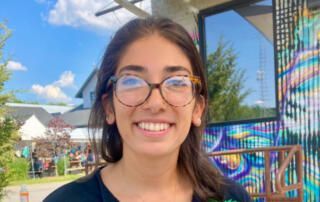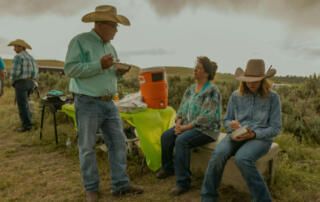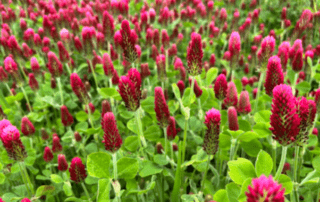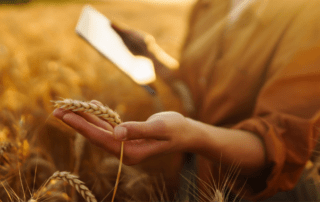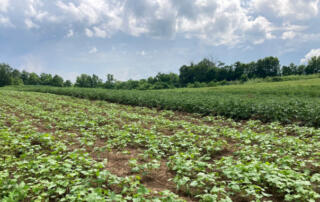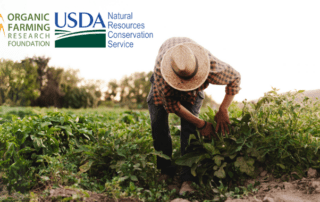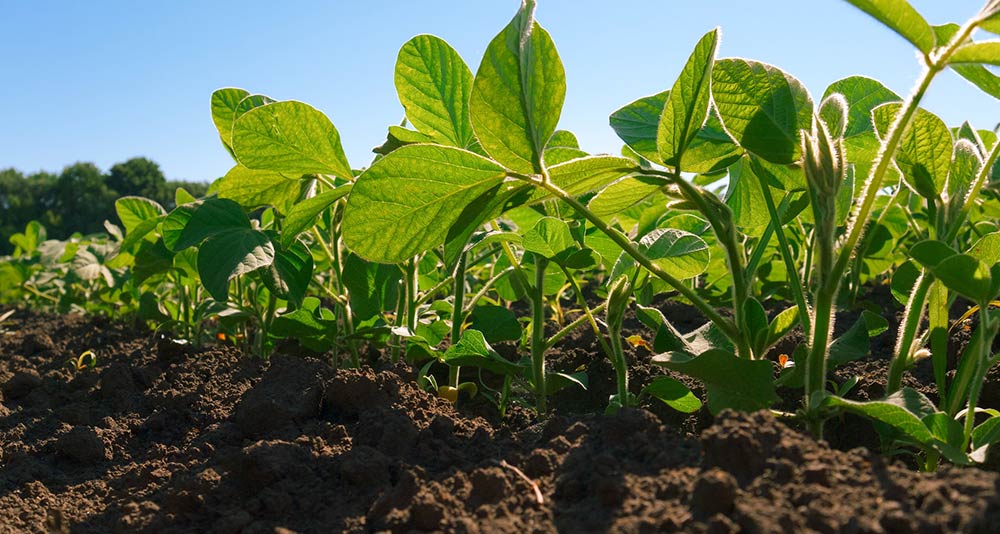Farmer-Led Trials Program Spotlight: Verdant Phoenix Farm
Rhianna Simes, M.S.Ed. owns and operates Verdant Phoenix Farm, a 10-acre certified organic, no-till, urban farm and education center located in Jackson County, Oregon. She is participating in OFRF's Farmer-Led Trials (FLT) Program to test the success of occultation as opposed to tillage as a field preparation solution for no-till farming.
From Global Insights to Local Impact, an intern perspective
As Marina Vergara, former intern at OFRF, moves onto the next chapter, she reflects on her experience gaining knowledge about organic farming in the US and building professional confidence through research and project management with OFRF. She is excited to apply her learnings at her new role as a Community Outreach Farmer.
The Importance of Community and Collaboration in Organic Agriculture Research
Through a new Researcher & Extension Agent affinity group in the West/Southwestern region, OFRF is helping to foster community within the organic farming sector, creating an environment where everyone can thrive.
The Song of One Thrush: Why We Need Each Other to Build a Healthier Food System
Our Board President, April Jones Thatcher, offers a heartfelt reflection on the joys and challenges of organic farming. In her inspiring call to action, April explores how you can be part of a healthier food system. Read her message and discover how your choices can cultivate a more sustainable future for our communities and our planet.
OFRF and 90 Partners Issue Urgent Call for More Organic Research Funding in Farm Bill
The Organic Farming Research Foundation leads a coalition of 90 farms, organizations, institutions, and businesses urging Congress to boost organic research funding in the next Farm Bill to bolster sustainability and economic growth.
Organic Farmers Lead the Way Toward Climate-Smart Agriculture
At Lazy Eight Stock Farm, farmer Bryce Baumann has worked with local NRCS agents in Kentucky to transition to organic production, and is now implementing practices to reduce plastic use and protect soil through the Climate-Smart Agriculture Program coordinated by the Organic Association of Kentucky (OAK).
Updates and a Hard Look at Organic Agriculture Research in the 2024 Farm Bill
This month Gordon’s Policy Corner takes a hard look at the latest updates to the 2024 Farm Bill, the implications for organic farming research in particular, and how the Organic Farming Research Foundation is continuing to advocate for organics.
Farmer-Led Trials Program Spotlight: Bob Quinn
Bob Quinn is a well-known fourth generation organic farmer growing grains in the plains of Montana. His farm grows winter wheat, alfalfa, and other grains. He is participating in OFRF's Farmer-Led Trials (FLT) Program to work on developing a cold-hardy landrace winter wheat variety that's well-adapted for organic farming in the mountain west region.
7 Ways to Build Successful Research Partnerships with Organic Farmers
Are you unsure if your organic farming research is reaching the farmers who need it most? Our experienced growers have the answers! This post shares their insights on creating successful and mutually beneficial research partnerships.
OFRF Awarded USDA NRCS Cooperative Agreement
The Organic Farming Research Foundation (OFRF) is pleased to announce its five-year cooperative agreement with the United States Department of Agriculture’s (USDA) National Resource Conservation Service (NRCS) to enhance organic agriculture businesses' access to vital conservation programs.




